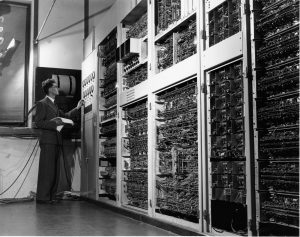Why Students Are Embracing Diverse Educational Pathways
In today’s fast-paced world, there is no one-size-fits-all approach to education. This has led to an increasing number of students embracing diverse educational pathways. Gone are the days when attending a traditional four-year university was the only viable option. Students today are open to exploring alternative routes towards achieving their career goals. This shift in mindset is driven by various factors, including the changing job market, the rising cost of education, and the need for practical skills. In this article, we will delve into why more and more students are choosing diverse educational pathways and the benefits that come with it.
The Changing Job Market
The job market has significantly evolved over the years. Industries that previously required a specific set of skills now demand a more varied skill set. As a result, traditional degree programs may not be as effective in preparing students for the current workforce. This is especially true for fields such as technology and entrepreneurship, where practical skills are highly valued.
Furthermore, the rise of the gig economy has created more opportunities for individuals with specialized skills. This has opened up a whole new world of flexible and project-based work, making it more appealing for students to acquire specialized skills rather than a general education.
The Rising Cost of Education
The cost of traditional education has been on a steady rise, making it unattainable for many students. According to the College Board, the average cost of tuition and fees for the 2020–2021 school year was $10,560 for in-state public universities and $27,020 for out-of-state students. This does not include other expenses such as housing, food, and textbooks.
With the increasing cost of education, more students are turning to diverse educational pathways as a cost-effective alternative. Online courses, bootcamps, and vocational training programs are often more affordable than traditional degree programs. They also offer more flexibility for students who may have other commitments, such as work or family.
The Need for Practical Skills
In today’s job market, employers are looking for candidates who possess practical skills that can be applied immediately in the workplace. They want candidates who can think critically, communicate effectively, and work in a team – skills that cannot be solely acquired through a traditional education.
Diverse educational pathways, such as coding bootcamps, vocational training programs, and apprenticeships, provide students with hands-on experience and real-world skills. These programs are designed to bridge the gap between education and the workforce, equipping students with the skills needed to thrive in their chosen career.
The Benefits of Diverse Educational Pathways
1. Cost-Effective
As mentioned earlier, diverse educational pathways are often more affordable than traditional degree programs. This makes them a viable option for students from low-income families or those looking to save money on education costs.
2. Flexibility
Traditional degree programs typically follow a rigid schedule, which may not be suitable for everyone. Diverse educational pathways offer a more flexible approach, allowing students to customize their learning according to their schedule and pace.
3. Practical Skills
Diverse educational pathways focus on providing students with practical skills that are in demand in the job market. This not only prepares them for their chosen career but also increases their employability.
4. Career-Specific Knowledge
Unlike traditional degree programs, which cover a broad range of subjects, diverse educational pathways are more focused on specific careers. This allows students to gain in-depth knowledge and skills in their chosen field.
5. Quick Entry into the Workforce
With diverse educational pathways, students can acquire the skills needed to enter the workforce quickly. This means they can start their careers sooner and begin earning a salary.
In conclusion, diverse educational pathways offer a viable alternative to traditional degree programs. With the changing job market, rising cost of education, and the need for practical skills, it is no surprise that more and more students are embracing these alternative routes. The benefits they offer, including cost-effectiveness, flexibility, practical skills, career-specific knowledge, and quick entry into the workforce, make them a desirable choice for students looking to kick-start their careers.











